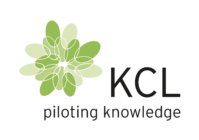Understanding what your material truly contains is the first step toward finding its best use. At KCL’s chemical analysis laboratory, we help you identify the composition of a wide range of materials — biomass such as wood chips, straw, coffee beans or grounds, potato peels, orange peels, or even process fluids.
Every sample tells a story. By analyzing its chemical composition, we can reveal what your material consists of — carbohydrates, lignin, extractives, and inorganics. These components determine whether a material is best suited for bio-based products, biochemicals, fuel production, or nutrients.
The sample pretreatment is extremely important to ensure the representativeness of the material.
The inorganic fraction that influences both process efficiency and downstream utilization options. Total inorganic content is estimated determining ash content and, if necessary, the elements can be determined.
Extraction separates the extractives and other components from the material. The extractives are a diverse group of organic compounds that can influence material properties and processing performance.
Next, the lignin content and carbohydrates are analyzed from the other components part of the sample. Lignin is a complex aromatic polymer that affects processing behavior, enzymatic degradability, and potential product pathways.
In the carbohydrate analysis, we identify and quantify monosaccharides such as glucose, xylose, arabinose, galactose and mannose. This step is particularly important for evaluating biomass with potential for further conversion into bio-based materials, fuels or biochemicals. Based on the monosaccharide profile, we can also calculate the content and composition of polysaccharides such as xylan, glucomannan, and cellulose.
With this data, we can build a picture of your material’s chemical composition. Combined with your process knowledge, it enables you to make data-driven decisions, such as
• Which process materials are worth refining or valorizing?
• How stable is the composition over time or between batches?
• Which process conditions would give the highest yield?
Whether you are developing new bio-based products, optimizing feedstock utilization, or improving process efficiency, KCL’s chemical analyses provide the fact based foundation you need.
KCL’s chemical analyzing services help you move from assumptions to understanding.
For more information, contact:
Eva Sandås, Head of Laboratory Services
eva.sandas(at)kcl.fi
+358 40 738 7842
Kaarina Fagerholm, Analysis Services
kaarina.fagerholm(at)kcl.fi
+358 40 829 4548
